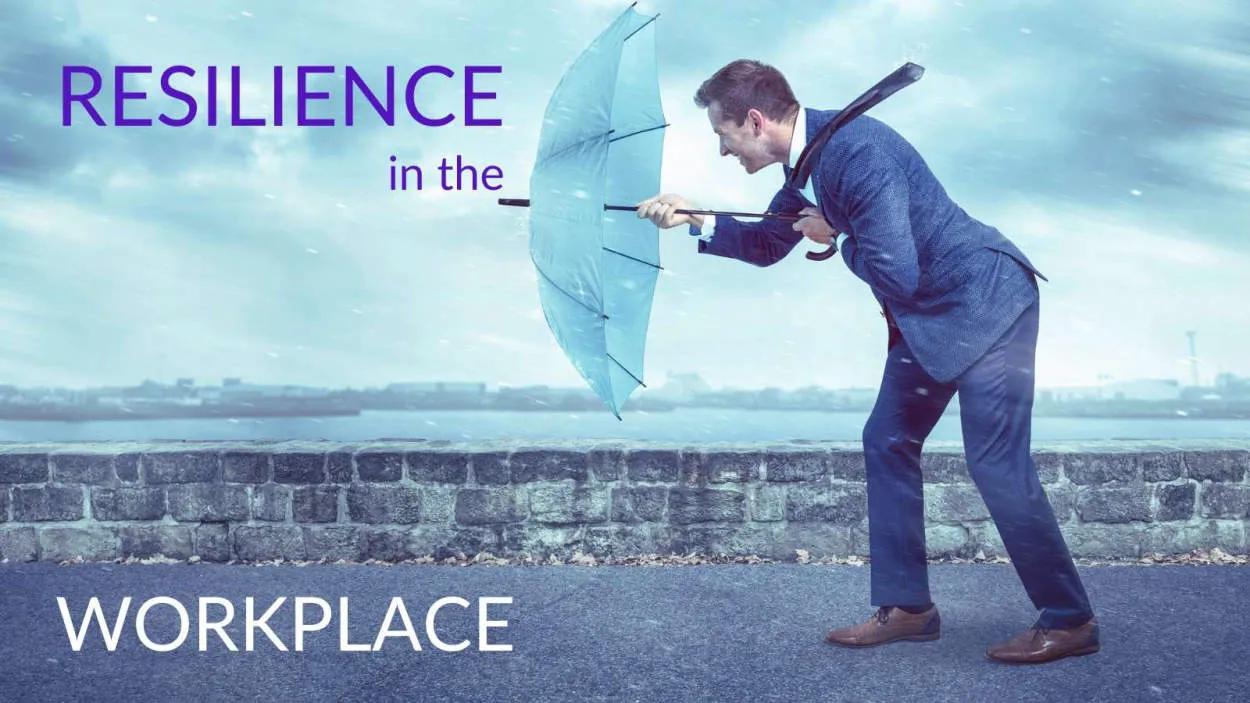Building resilience is becoming increasingly crucial for employees in today’s fast-paced and ever-changing work environment. As individuals face various challenges and uncertainties, the ability to bounce back and adapt has become a valuable skill. In this article, we will explore the importance of building resilience and how it can positively impact employee well-being and productivity.
Developing a Growth Mindset
Building resilience is a crucial skill for employees to thrive in today’s fast-paced and ever-changing work environment. One way to cultivate this resilience is by developing a growth mindset.
A growth mindset is the belief that abilities and intelligence can be developed through dedication, effort, and a commitment to learning. It is about seeing challenges as opportunities for growth rather than setbacks. By adopting a growth mindset, employees can become more adaptable, resilient, and better equipped to overcome obstacles.
Here are some key strategies for developing a growth mindset:
- Embrace challenges: Rather than avoiding difficult tasks, see them as chances to learn and improve. Embracing challenges helps to develop problem-solving skills and resilience.
- Learn from failure: Instead of viewing failure as an endpoint, treat it as a valuable learning experience. Analyze what went wrong, extract lessons, and use them to grow and improve.
- Display perseverance: Developing a growth mindset requires persistence. Keep pushing forward, even when faced with setbacks or obstacles. Perseverance builds resilience and fosters personal and professional growth.
- Seek feedback: Actively seek feedback from supervisors, colleagues, and mentors. Feedback provides valuable insights and areas for improvement, helping to develop skills and knowledge.
- Cultivate a learning mindset: Stay curious and open-minded. Continuously seek new knowledge, expand your skills, and embrace opportunities for personal and professional development.
By integrating these strategies into their daily lives, employees can foster a growth mindset and enhance their ability to navigate challenges, adapt to change, and ultimately thrive within their roles.
Adapting to Change
Building resilience is a crucial skill for employees in today’s rapidly changing world. With constant advancements in technology, shifting market dynamics, and unforeseen global events, organizations and individuals must be prepared to adapt to new circumstances. Resilience allows employees to navigate these changes with confidence and agility, enabling them to thrive in any situation.
Resilient employees possess the ability to bounce back from setbacks, embrace challenges, and learn from failures. They understand that change is inevitable and instead of resisting it, they embrace it as an opportunity for growth. By being open to new ideas and approaches, they can continuously evolve and improve their skills.
Moreover, building resilience helps employees maintain a positive attitude amidst uncertainty. It allows them to stay focused on their goals and find innovative solutions to problems. Resilient employees are not easily overwhelmed by change; instead, they view it as a chance to develop their problem-solving abilities and enhance their adaptability.
To cultivate resilience, employees can engage in various practices. Developing a strong support network, both personally and professionally, can provide a sense of stability during challenging times. Taking care of physical and mental well-being, through activities like exercise, mindfulness, and stress management, can also contribute to building resilience.
Effective communication is another crucial aspect of resilience. By keeping an open line of dialogue, employees can voice concerns, seek guidance, and share ideas. This promotes a culture of collaboration and problem-solving, enabling individuals to navigate change together.
In conclusion, building resilience is essential for employees in today’s ever-changing landscape. With this skill, individuals can embrace change, adapt quickly, and maintain a positive mindset. By continuously developing resilience, employees are better equipped to excel in their careers and contribute to the success of their organizations.
Managing Stress and Overcoming Setbacks
Building resilience is a crucial skill for employees in today’s fast-paced and challenging work environment. By effectively managing stress and overcoming setbacks, individuals can develop their resilience and thrive professionally.
Stress management is essential in maintaining mental well-being and optimizing performance. Employees should prioritize self-care practices, such as getting enough sleep, engaging in regular physical exercise, and practicing relaxation techniques like meditation or deep breathing. Additionally, time management skills and setting realistic goals can help alleviate the pressure and prevent burnout.
Furthermore, when faced with setbacks, resilient employees view them as opportunities for growth rather than insurmountable obstacles. They maintain a positive mindset and actively seek solutions and lessons to learn from the experience. Being flexible and adaptable allows employees to quickly recover from setbacks and bounce back stronger.
In fostering resilience, building a support network is vital. Employees should seek support from colleagues, mentors, or professional networks, as sharing experiences and seeking guidance can provide perspective and valuable insights. Additionally, practicing effective communication and seeking help when needed can prevent feelings of isolation and promote collaboration.
Finally, continuous learning and personal development play a significant role in building resilience. Employees should embrace challenges, seek opportunities for growth, and develop new skills. By focusing on personal and professional growth, individuals can enhance their abilities to overcome setbacks and adapt to changing circumstances.
Conclusion
Building resilience is a crucial skill that every employee should possess. It enables them to adapt to changes, overcome challenges, and thrive in today’s dynamic work environment. By developing resilience, individuals can better handle stress, bounce back from setbacks, and maintain a positive mindset. Employers should prioritize resilience-building initiatives to create a more resilient and productive workforce.




